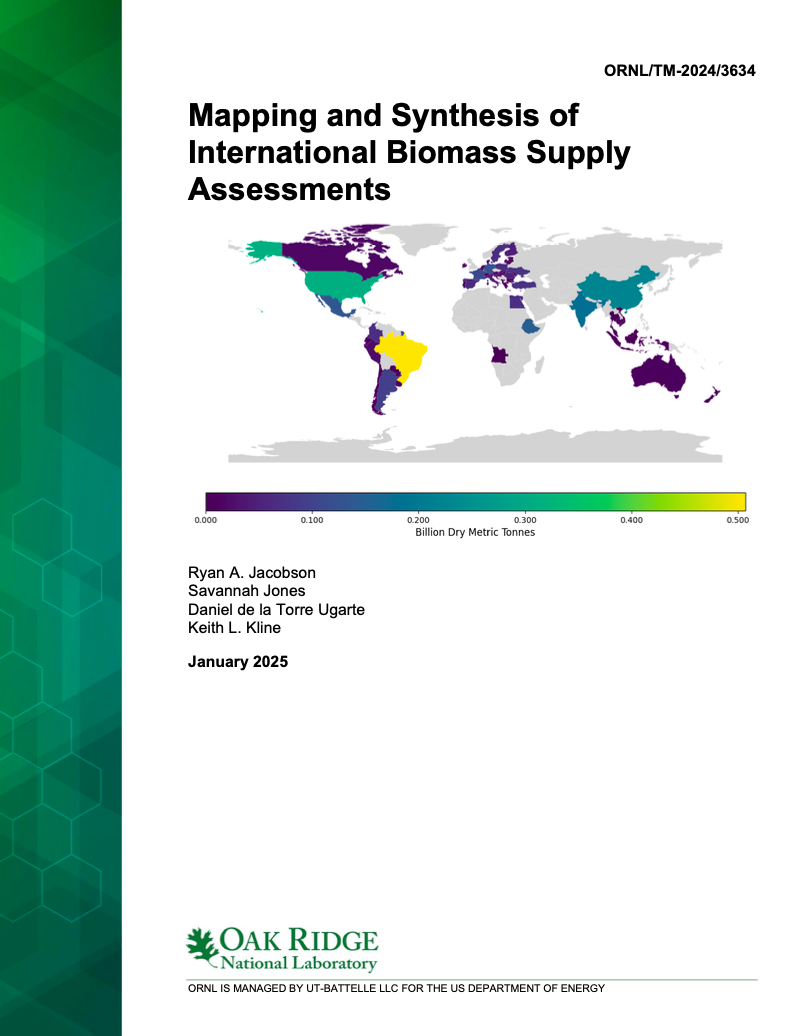EU Biorefinery Outlook to 2030 - Studies on support to research and innovation policy in the area of bio-based products and services (2021)

This study is a collaboration between E4tech (lead), Wageningen Research, BTG, FNR and Icons. This study presents scenarios on how demand and supply for bio-based chemicals and materials could grow to 2030 and provides roadmaps with actions required to increase the deployment of chemical and material driven biorefineries in the EU. Over 100 stakeholders from the bio-based industry, academia & research institutions, investment community and policy makers have participated by stakeholder workshops, meetings and interviews.
Biorefining can be broadly defined as the processing of biomass into a portfolio of marketable bio-based products, which could include co-production of food and feed, chemicals and materials and bioenergy. Biorefineries producing bio-based chemical and material products are expected to be an important part of the circular bio-based economy, as well as the EU’s transition to a climate-neutral economy. Deployment of biorefineries that utilise domestic EU biomass can increase security of supply of raw materials, substituting fossil-based materials and products and their respective emissions, and create jobs and business opportunities, especially in rural areas. They increasingly complement processing of biomass in bioenergy and biofuels driven biorefineries, as well as other production routes to produce bio-based chemicals and materials, such as co-processing in existing facilities and those based on CO2 and recycled carbon.
Some highlights of the report are discussed below:
· A biorefinery classification system (see Table 1 of the document) has been developed to communicate information about chemical and material driven biorefineries on the basis of four major full value chain categories important to biorefinery operations: feedstocks, conversion processes, platforms and products.
· The document includes an interactive dashboard of chemical and material driven biorefineries in the (non-) EU and the current deployment status of these.
· The most important general drives were identified as: the Green Deal, governmental support for expansion and scale-up of biorefineries, the need to reduce dependence on fossil raw materials and products as well as their related greenhouse gas emissions, and the functional benefits that bio-based products are potentially able to provide.
· The lack of economic viability was identified as the main non-technical barrier to bio-based chemicals and materials deployment, particularly for biorefineries producing large volume commodities.
· All bio-based chemicals and materials driven biorefineries, to varying degrees, have immediate concerns about certified sustainable feedstock supply and mid- to long-term concerns over the sustainable feedstock mobilisation potential in a competitive circular bioeconomy. The EU biomass potential is large from primary crops and agricultural, process and post-consumer residues and wastes, but there will be demand for these feedstocks from various sectors.
· Two scenarios to 2030 for the demand for bio-based chemicals and materials in the EU have been developed. The high growth scenario assumes: a favourable macro-economic environment and policy for bio-based products, including a strong recovery from the Covid- 19 pandemic, a high oil price (increasing the competitiveness of bio-based products in some applications), a market pull policy put in place for bio-based chemicals and materials and there is widespread financial support for various types of biorefinery investments. These factors are contradictory or do not develop in the low growth scenario.
· The potential demand in 2030 (Figure 2) could grow significantly in the high growth scenario to ~16 million tonnes per year (Mtpa) growing at about 9.9% per year until 2030, but could reach approximately only half this amount in the low growth scenario growing at about 3.0% per year.
· The current bio-based chemicals and materials supply from EU biorefineries is estimated at 4.6 million tonnes (Figure 3). It is estimated that supply from new or expanded biorefineries could grow by an additional 3.1 million tonnes in the EU in 2030 in the high growth scenario, whilst in the low growth scenario this could be limited to an additional 1.1 million tonnes.
· Policy and regulation is essential to close the large gap between the market’s willingness to pay and bioproduct costs, addressing the economic barriers to deployment identified as the most important by stakeholders. Policy that supports chemicals and materials that provide environmental benefits such as greenhouse gas savings should be implemented. The types of policy actions included in the roadmap are GHG reduction targets, mandates (e.g. in public procurement), bans/reducing targets on use of fossil and non-recycled products, as well as taxes on some fossil products and carbon.
Recente artikelen
Oak Ridge National Laboratory: Mapping and Synthesis of International Biomass Supply Assessment | 2025

PBL: Groene waterstof - de praktische uitdagingen tussen droom en werkelijkheid | 2025

Frituurvet, recycle het!


